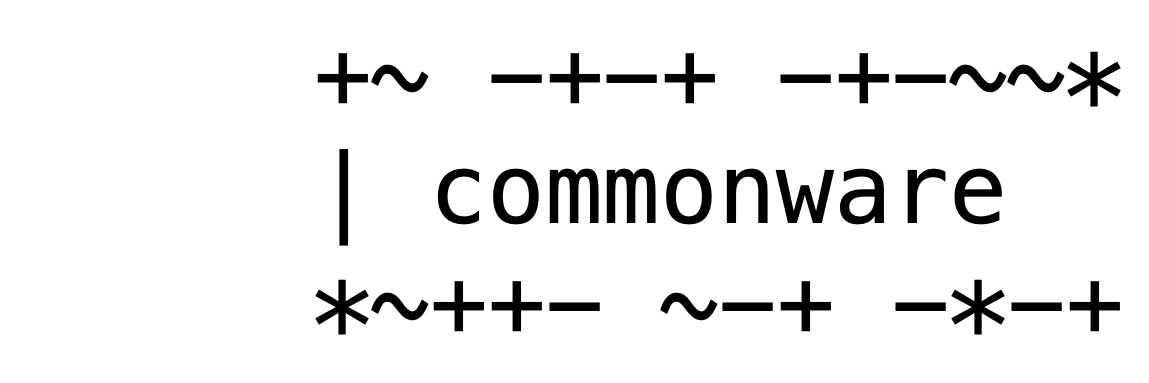
commonware
@commonwarexyz
Today, I'm excited to share @commonwarexyz raised $9M from @HaunVentures, @dragonfly_xyz, and an experienced group of builders to rethink the way blockchains are built for the decade ahead. Unveiling Commonware: the Anti-Framework
Today, I'm excited to share @commonwarexyz raised $9M from @HaunVentures, @dragonfly_xyz, and an experienced group of builders to rethink the way blockchains are built for the decade ahead. Unveiling Commonware: the Anti-Framework
Over the last few weeks, @dnkolegov (and the team at @asymmetric_re) translated Minimmit into an executable specification (written in Quint). Why? We can now automate the search for Minimmit unsoundness against the Apalache Symbolic Model Checker 🤖.
Over the last few weeks, @dnkolegov (and the team at @asymmetric_re) translated Minimmit into an executable specification (written in Quint). Why? We can now automate the search for Minimmit unsoundness against the Apalache Symbolic Model Checker 🤖.
OH in slack about @commonwarexyz: "yeah, the repo's structure and commands hint at being designed by someone who knows what they're doing."
OH in slack about @commonwarexyz: "yeah, the repo's structure and commands hint at being designed by someone who knows what they're doing."
The next few months will get interesting. Lots of teams talking about a migration to commonware.
For as long as I can remember, teams have been asking us (@commonwarexyz) for reth support. On Monday, @SeismicSys reached out to let us know they built it (on their own/no help from us). Unreal. Looking forward to seeing where this goes 👀
Summit is here! The missing piece for EVM builders: • Plug-and-play consensus • Sub-second performance Seismic didn't just face the problem they built the solution. Big respect to @SeismicSys & @commonwarexyz for pushing modular infra forward.
Introducing Summit, a consensus client for Reth.
Power of Open Source Awesomeness. @commonwarexyz will attract a lot of similar minded devs because of the quality of their work. Just being OS is not enough.. its gotta be good too.
For as long as I can remember, teams have been asking us (@commonwarexyz) for reth support. On Monday, @SeismicSys reached out to let us know they built it (on their own/no help from us). Unreal. Looking forward to seeing where this goes 👀
This wouldn't have been possible without the incredible work of @commonwarexyz. We use nearly all their primitives, and our architecture is heavily inspired by their Alto project. The Summit implementation and benchmarks can be found here: github.com/SeismicSystems…
Summit is the consensus client we wish we had from day one. Today, we're open-sourcing the code so other teams building EVM chains can benefit.
We ran into this problem firsthand while building Seismic. Consensus wasn't our focus. We just needed something that worked, and could keep up with modern blockchains. But we couldn't find a good option.
Developers building EVM blockchains lack a consensus engine that's both: ✅ Turnkey – easy to plug into an EVM execution client like Reth ✅ Fast – capable of sub-second block times
you can just do things
Introducing Summit, a consensus client for Reth.
Timelock Encryption (cryptography::bls12381::tle) is now available in the Commonware Library. Encrypt messages (bids) that automagically decrypt in the future (at the end of an auction).
Timelock Encryption (cryptography::bls12381::tle) is now available in the Commonware Library. Encrypt messages (bids) that automagically decrypt in the future (at the end of an auction).
Decentralized thoughts on 2 round BFT in Simplex style With @ElodinStorm and Ling Ren decentralizedthoughts.github.io/2025-07-18-two…
Decentralized thoughts on 2 round BFT in Simplex style With @ElodinStorm and Ling Ren decentralizedthoughts.github.io/2025-07-18-two…
Decentralized thoughts on 2 round BFT in Simplex style With @ElodinStorm and Ling Ren decentralizedthoughts.github.io/2025-07-18-two…
What if you could capture the performance of a new mechanism before implementing it? Or even estimate how much "juice is left to squeeze" from further optimization? Meet @commonwarexyz's newest primitive: commonware-estimator (and the .lazy DSL)
What if you could capture the performance of a new mechanism before implementing it? Or even estimate how much "juice is left to squeeze" from further optimization? Meet @commonwarexyz's newest primitive: commonware-estimator (and the .lazy DSL)
To compete effectively with high-performance centralized blockchains, decentralized networks must deliver an equally responsive and seamless user experience. Achieving this demands overcoming persistent performance bottlenecks. QMDB and FAFO tackle the core challenges in storage…
How Things Work #4: The Quick Merkle Database (QMDB) and Fast Ahead-of-Formation Optimization (FAFO) Today, we discuss how QMDB and FAFO drive (unbelievable) scalability with @ryanzarick, @IsaacN0tNewton, and @Thomas_S_Kim from @LayerZero_Core. A log is all you need 🪄.
A log is all your need. Turns out you can just build a log db with hooks on CRUD and maintain arbitrary secondary indexes. It is as good as thor's hammer with extensions.
How Things Work #4: The Quick Merkle Database (QMDB) and Fast Ahead-of-Formation Optimization (FAFO) Today, we discuss how QMDB and FAFO drive (unbelievable) scalability with @ryanzarick, @IsaacN0tNewton, and @Thomas_S_Kim from @LayerZero_Core. A log is all you need 🪄.